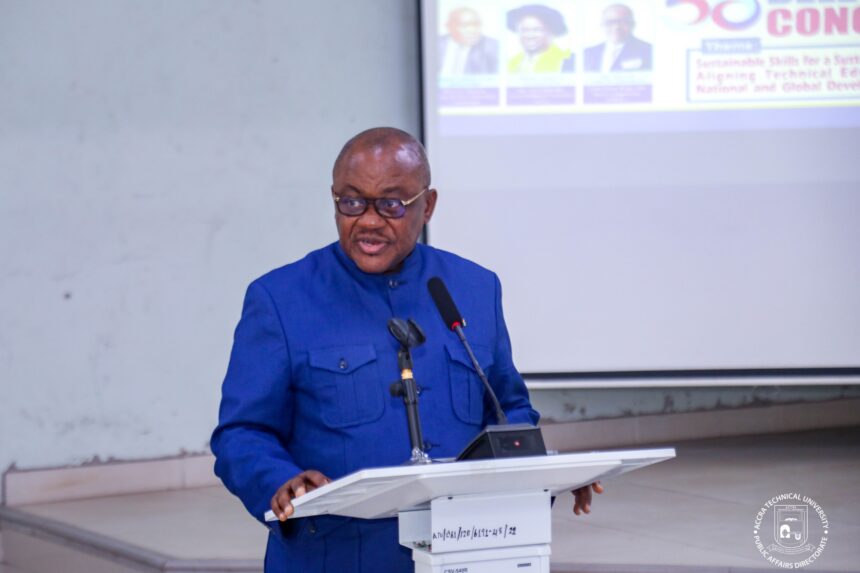The Chief Executive of the Fair Wages and Salaries Commission (FWSC), Dr George Smith-Graham, has proposed a change to the negotiation cycle for conditions of service.
The proposal is aimed at addressing the challenges of managing conditions of service in the public sector and also to provide fiscal space for government planning and stability.
Speaking in Accra on Wednesday, August 27, 2025 at the 50th Technical University Teachers Association of Ghana (TUTAG) delegates Congress, Dr. Smith-Graham suggested that the negotiation cycle should be shifted to every three years instead of the existing two year cycle
He emphasized the importance of finding a balance between meeting the needs of public sector workers and ensuring fiscal sustainability.By shifting the negotiation cycle to every three years, Dr. Smith-Graham believes that it would give the government the necessary space to plan and budget for the implementation of agreed conditions of service.
Commitment to Technical Education
The Congress that attracted delegates from all technical universities across the country was on the theme “Sustainable Skills for a Sustainable Future. aligning technical education with national and global development goals.”
Dr. Smith-Graham emphasised the importance of technical education in building a resilient and sustainable Ghana.
He called for a commitment to technical education that is aligned with market needs and compensation policies, and highlighted the potential for technical education to drive national development and achieve the Sustainable Development Goals (SDGs).
He discussed the challenges of skills mismatch and unemployment among graduates and emphasized the need for industry-academic partnerships to address these issues.
Dr. Smith-Graham proposed industry-academic partnerships as a way to co-finance allowances, research grants, and professional development programs.
Re-examining Technical Education
The Minister of Education, Haruna Iddrisu, in a speech read on his behalf emphasised the need to re-examine the current technical education programs to ensure they are practical and applicable to the needs of the market and society.
The Minister highlighted the potential for technology to drive innovation and improvement in various areas, such as agriculture, safety, and waste management.
The Minister called for collaboration and community engagement in technical education, and suggested that the conference should come up with practical solutions and recommendations for improving technical education in Africa.
The Minister’s speech highlighted the importance of research and innovation in driving technological progress, and encouraged universities to promote a culture of innovation and digital literacy.
Despite the challenges facing Ghana, the Minister expressed optimism that with collective effort and expertise, significant progress can be achieved in technological development.
Call to Action
The National President of the Technical University Teachers Association of Ghana (TUTAG), Prof Uriah Stonewell Tetteh, called for unity and collaboration among academic unions to address the challenges facing technical education.
According to the President, technical universities must adapt to changing labor market demands and technological advancements to remain relevant.
The President framed the congress as a call to action, encouraging delegates to work together towards building a globally competitive and sustainable technical education system. He expressed gratitude to the acting vice chancellor and management of the host university and urged delegates to support their efforts to improve the university.






